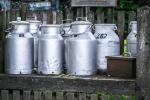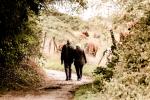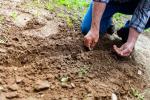LIFE Project: Reforestation and Climate Change Mitigation: Testing, evaluation, and transfer of innovative methods based on fog harvesting
- Type Project
- Status Filled
- Execution 2020 -2024
- Assigned Budget 2.185.777,00 €
- Scope Europeo
- Autonomous community Canarias
- Main source of financing LIFE
- Project website Web del proyecto
The LIFE NIEBLAS project aims to test innovative fog collectors and innovative reforestation methods based on fog water harvesting that do not significantly increase the carbon footprint compared to traditional methods, considering their effectiveness and overall costs and benefits. The project team will implement restoration measures to reduce erosion, and these activities will contribute to the environmental recovery of areas in Gran Canaria (Spain) and Portugal, and help increase resilience to climate change.
Climate change is causing a reduction in rainfall and an increase in desertification in many areas of southern Europe and the outermost regions of the EU. Forest fires affect hydrological balances, not only through the loss of green cover but also through reduced infiltration and increased surface runoff. In addition to the alteration of the ecological value of forests, it is worth noting the elimination of their protective function, which translates into the acceleration of erosion processes. Furthermore, rain cycles or episodes tend to be shorter in duration but more intense, resulting in a significant increase in runoff and soil erosion processes. Recently, Gran Canaria (Spain) and Portugal have been impacted by large forest fires, which have affected not only the natural environment but also agricultural areas, livestock farms, homes, and infrastructure.
- Demonstrate and disseminate the effectiveness, efficiency, and capacity of innovative fog collectors and different reforestation approaches, as well as the associated equipment, to facilitate their replication and transfer.
- To improve the climate change resilience of a degraded area of the Barranco de La Virgen Natura 2000 site (SAC) on the island of Gran Canaria, characterized by an endemic heathland habitat, through reforestation that does not significantly increase the carbon footprint. This will improve environmental quality and groundwater infiltration, control runoff, reduce evapotranspiration, and reverse or slow desertification. Based on the results of this action, other Natura 2000 sites in Portugal will be selected for restoration.
- Create synergies between the project and other sectors and policies (e.g., agriculture, energy and water management) in the Canary Islands (Spain), Portugal, and other parts of the EU.
- Raise awareness about the importance of forest cover to water resources, demonstrating the environmental importance of its conservation, restoration, maintenance, and expansion for resilience to climate change.
- Implementation of three innovative reforestation models based on fog harvesting and reforestation of laurel forests in Gran Canaria, and oak (Quercus pirenaica), willow (Salix neotricha) and plane (Acer pseudoplatanus) forests in Portugal.
- Creation of an open web tool to evaluate and compare reforestation projects (based on effectiveness, efficiency, and externalities).
- Celebration of the International Day on Climate Change, Reforestation, and Fog Harvesting in Gran Canaria, with at least 10 projects/research projects presented and 10 organizations showcasing products and services.
- Technical Manual on Fog Harvesting-Based Reforestation (in English, Spanish, and Portuguese) - 500 copies in paper and digital format. | Reforestation types and/or fog harvesting techniques replicated in at least 15 third-party plots.
- Capture of at least 300,000 liters of water using innovative fog collectors.
- Planting of 24,300 seedlings (at least 40% survival).
- Meetings in Gran Canaria, Madrid, the Viseu do Lafes region, and Brussels to create synergies between project outcomes and EU policies, and to raise awareness through at least 120 activities with a minimum of 2,000 participants.
- Coordinator/entity name: Gustavo Viera Ruiz
Postal address: C/Len y Castillo, 54, ground floor, 35003, Las Palmas de Gran Canaria
The project contributes to the implementation and development of EU policy and legislation on climate change mitigation, as well as the EU Strategy on Adaptation to Climate Change, by increasing the resilience of vulnerable areas in EU islands and outermost regions. The project also helps to implement the Habitats Directive through actions that improve the conditions of priority habitats: endemic Macaronesian heaths (4050*) and Macaronesian laurel forests (9360*), and the endemic plant species Sambucus palmensis, Isoplexis chalcantha and Sideritis discolor.
- Gestión y Planeamiento Territorial y Medioambiental, S.A. (GESPLAN)
- CIM VDL(Comuniade Intermunicipal Viseu Dão Lafões)
- CGC(Cabildo Insular de Gran Canaria)
- CREAF(Centro de Investigación Ecológica y Aplicaciones Forestales)
- ICIA (Instituto Canario de Investigaciones Agrarias (Canarian Crop Research Institute)
- ULL(Universidad de La Laguna)
- Heredad(Heredad de Aguas de Arucas y Firgas)
- ITC(Instituto Tecnológico de Canarias, S.A.)
- Universidad Autónoma de Barcelona







